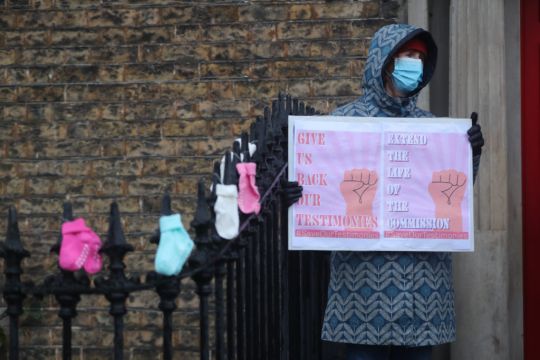Data Protection Commissioner Helen Dixon has warned that the Minister for Children Roderic O’Gorman and his department will have to move quickly to mitigate against the risks of taking over the archive of the Mother and Baby Homes Commission.
“Our concern at this stage is that the Commission of Investigation was the expert in its own archive, clearly it knows its way around these, it created the archive, it worked on this Commission for five years so there's really a need for the department now to quickly mitigate what are high risks in taking over an archive of this nature,” she told RTÉ’s Today with Claire Byrne.
Given the controversy about the deletion of the audio recordings, it was important that the department have a clear understanding of what factors the Commission had considered when it decided to delete the recordings, she added.
“Whether it's right or wrong that they deleted them, in all the circumstances and clearly there are big question marks, the transparency appears to have been lacking to the witnesses around it, from what we know, but it's extremely important that they understand the factors that the Commission considered because some of those may still be in play.”
Ms Dixon said that her office was in contact with the Minister, his department and with the Commission, and it was looking like the Commission would dissolve in accordance with the legislation this weekend. “Our focus is moving to the Minister and his department as they take over control of these records.
“We understand from the department that it believes 100,000 documents, 900,000 pages and 120,000 persons may be referenced in the archive that they're taking over.”
Testimony

There may be issues around the rights of third parties that were accused in that testimony, she said. That would have to be factored in now as the department looked to give effect to rights “because the rights of all persons referenced in these records has to be considered and that's our concern at this stage.”
It was unclear what was happening with the audio recordings given that it was the role of the Commission to implement the redaction at the choice of the witnesses, she said, the question now was the Commission implementing redaction on the audio recordings?
Ms Dixon added that her office had received 15 complaints from survivors about the audio files. The news about the deletion of the audio files had come as a surprise to her. GDPR applied to the rights of access, she said. It had not been acceptable that there had been a “blanket” refusal to appeals for access.
There was an obligation on the Commission to explain why they had responded in the way they did, she said.







